Vitaliy Kaplia currently resides in the Ivano-Frankivsk Region with his mother and wife. He recently underwent rehabilitation after injuring his arm in a drone attack in September 2024 in his native Bilozerka in the Kherson Region. He was standing on the street when a Russian drone suddenly crashed nearby, and its metal fragments pierced his arm. When the wound became infected, he had to undergo surgery. Only then did he leave the frontline area and relocate to join his family in Ivano-Frankivsk Region.
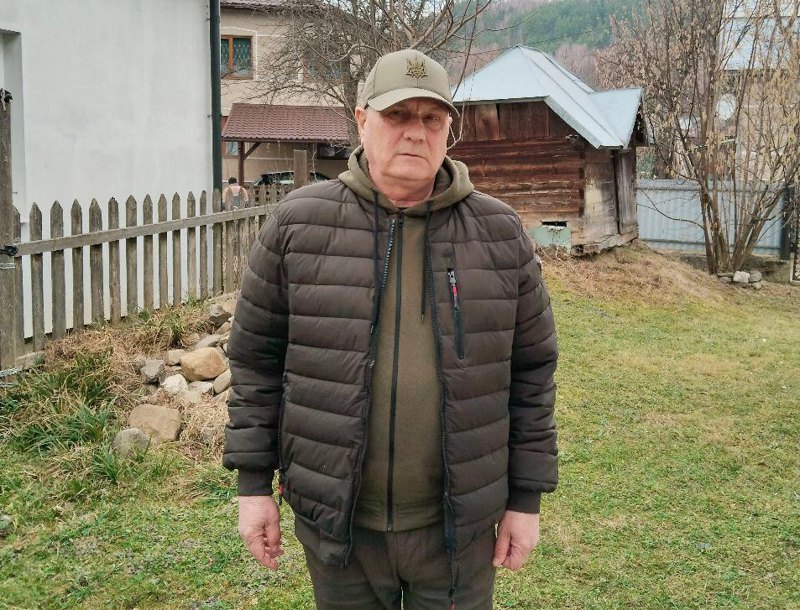
Controlled by the ‘LPR and DPR people’
Bilozerka is located near Kherson, so the settlement remained under Russian military control for almost as long as the regional centre. Throughout the occupation, Vitaliy Kaplya stayed at home with his mother.
He recalls the beginning of the full-scale invasion and his first encounters with the Russian occupiers.
“Mostly, they were so-called soldiers of the ‘Luhansk People’s Republic’ and the ‘Donetsk People’s Republic’. They did not conceal their origins or their hatred for us – for our people. These soldiers did whatever they wanted: they looted, kidnapped people from their homes and directly off the streets, beat them, mocked them, stole their belongings, drove around drunk in vehicles, and fired at civilians,” says Vitaliy Kaplya.
According to him, the occupiers set up so many checkpoints that eventually people stopped leaving the town unless absolutely necessary.
“At first, people travelled by bus, minibus, and car. When they began thoroughly checking and searching passengers, people switched to minibuses only. But later, even from those, people were dragged out,” he says.
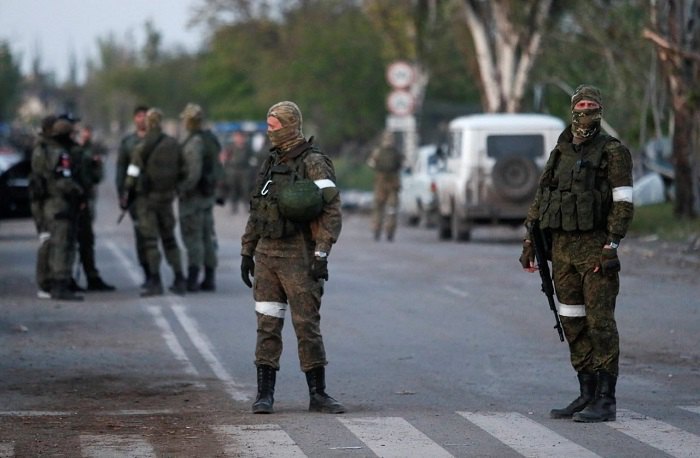
“I was on my way to work when they took the mayor of Kherson”
According to Kaplya, when the Russian armed forces occupied Kherson and seized administrative buildings, some members of the local leadership, including the mayor, gathered elsewhere to address urgent matters.
“When the occupiers took Ihor Kolykhayev, we were on our way to work. It was the morning of 28 June 2022. Our colleagues ran down the street towards us and told us not to go there because the Russian military was taking the mayor and all the men who were there at the time. Our mayor has been with them ever since,” says Vitaliy.
That day, the man was lucky. However, he knew the occupiers would eventually track him down.
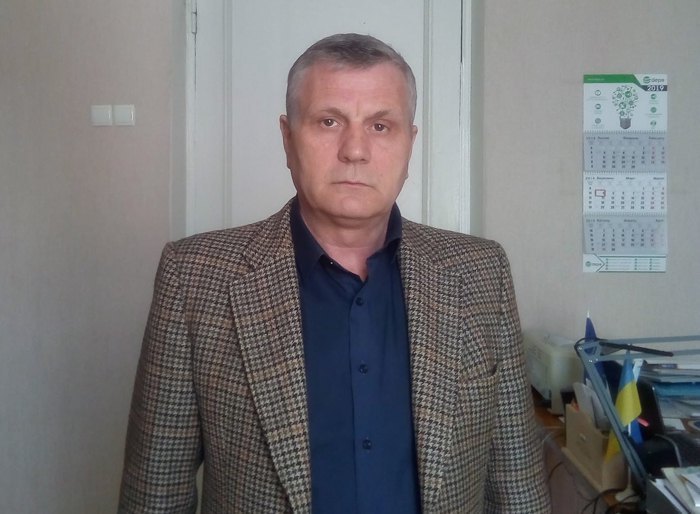
Kidnapped from his own home
He did not have to wait long. About a week later – Vitaliy does not recall the exact date – militants from the so-called ‘Luhansk People’s Republic’ arrived at his home.
“They were very drunk and, apparently, under the influence of some kind of drugs – and also very aggressive. They could not explain anything properly, they just started beating me. Then the FSB arrived. They questioned my elderly mother about something but did not threaten her. My wife was already in controlled territory at that time,” the man says.
They then shoved him into a car and drove him to an unknown location. When they brought him there, Vitaliy recognised the place: the territory of a large agricultural enterprise in Pryozerne.
“Immediately upon arrival, they began telling me fairy tales about how they had come here to stay. That I had to work with them, that no one would hurt me. An FSB agent tried to talk to me, but I didn’t agree with his ‘arguments’. They beat me badly and took me to a cell,” he recalls.
He does not remember his entire time in prison – he was poisoned by fuel fumes
It is difficult to call it a cell. It was four walls of sawn stone, three by three metres, covered with a slab and sealed with an iron door on top. There were no windows, no toilet, and no water. He was not taken to the toilet, so he had to relieve himself right there.
He was fed only once a day – pasta and a piece of bread.
Vitaliy does not fully remember his time in detention, as he was poisoned by petrol fumes and other substances stored in the room.
“There were large plastic barrels of petrol and diesel fuel there. It was incredibly hot outside. I made a small hole between the door and a sawn stone so I could breathe a little, but I still lost consciousness – I think. I don’t remember how they carried me out. I still have lung problems because of the poisoning,” the man says.
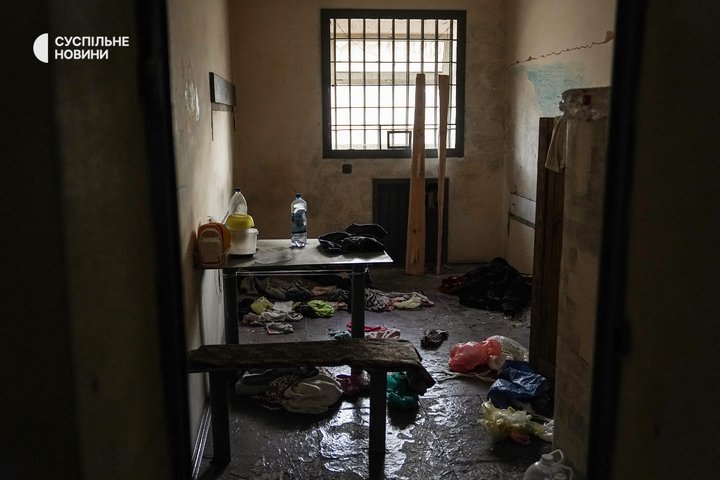
‘Women screaming and children crying around the clock’
Vitaliy was not the only person held on the premises of the agricultural enterprise. He says he constantly heard the screams of people and the cries of women and children.
“I didn’t see anyone because I was kept alone in the cell. But I heard them. It was terrible screaming, day and night. They had set up a checkpoint near this enterprise and were stopping people, so there was constant noise. Some were released, while others were held there. I remember children crying for their mother, who was probably taken away for interrogation while they were left in the car,” Vitaliy recalls.
He also heard women screaming. According to him, the nature of the screams and the phrases he overheard indicated that they were being raped.
Execution
On the fifth or sixth day, Vitaliy and two other men were taken in separate vehicles to be executed.
“One guy was about 26 or 27 years old, and the other was a man from a neighbouring village, a couple of years older than me. The young man was immediately shot with an automatic weapon and thrown into a ditch near a tank. I remember that he was wearing sweatpants, a torn T-shirt, and one rubber slipper. They threw us in there too and started shooting overhead. I think if the FSB officers had given the order to kill us, they would have done it. They were drunk, laughing, but at the same time very aggressive,” the man recalls.
When the Russian soldiers left, Vitaliy and the other man buried the young victim to prevent his body from being eaten by animals. Then they parted ways. Vitaliy never saw the man again.
Hiding with family and friends
Vitaliy returned home that same day. It took him a long time to recover. However, the occupiers did not leave him alone.
“Later, they came again – but just to talk. They wanted me to sign papers, to agree that I would supposedly cooperate with them, to go and work for the military administration… I got tired of their visits, and I started hiding in my relatives’ and friends’ places,” the man says.
He managed to wait for the Armed Forces of Ukraine to arrive on his native land.
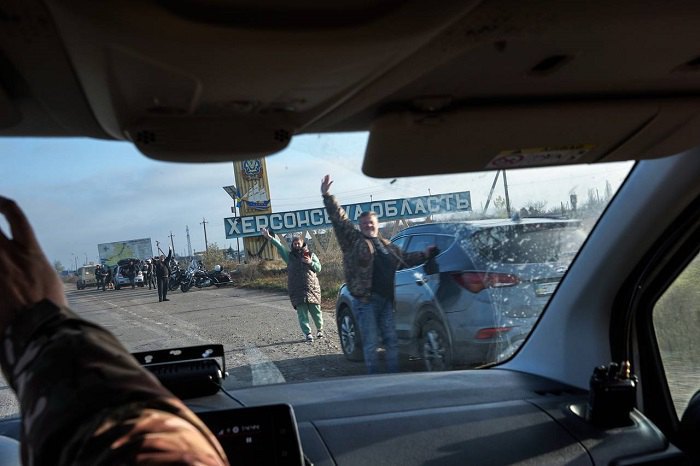
Vitaliy Kaplya states that Russian troops and militants from illegal armed groups sensed the approach of Ukrainian forces – particularly in the weeks preceding the Armed Forces’ lightning counteroffensive. According to him, they actively promoted “evacuation”, saying, “The Bandera followers will come and shoot everyone who stayed behind during the occupation instead of leaving.”
“Many people were forcibly removed, especially families with children. Their homes were looted. Grain, paintings, museum exhibits, and money were transported across the Dnipro River on ships and boats. Even the relics of saints were taken away. Can you call them people?” says Vitaliy.
More than two years have passed since the de-occupation of the right bank of Kherson Region. But the pro-Russian authorities continue to target both the liberated territories and their residents. At the beginning of the year, the pro-Russian outlet TASS published a discrediting article calling Vitaliy Kaplya and several other local officials a “Bandera gang”. Vitaliy is not surprised – he says these are their usual tactics.
Currently, the front line remains close to Bilozerka, where people continue to live despite constant shelling and the impossibility of a normal life. Yet they survived the occupation – and now they hope the war will end soon.








